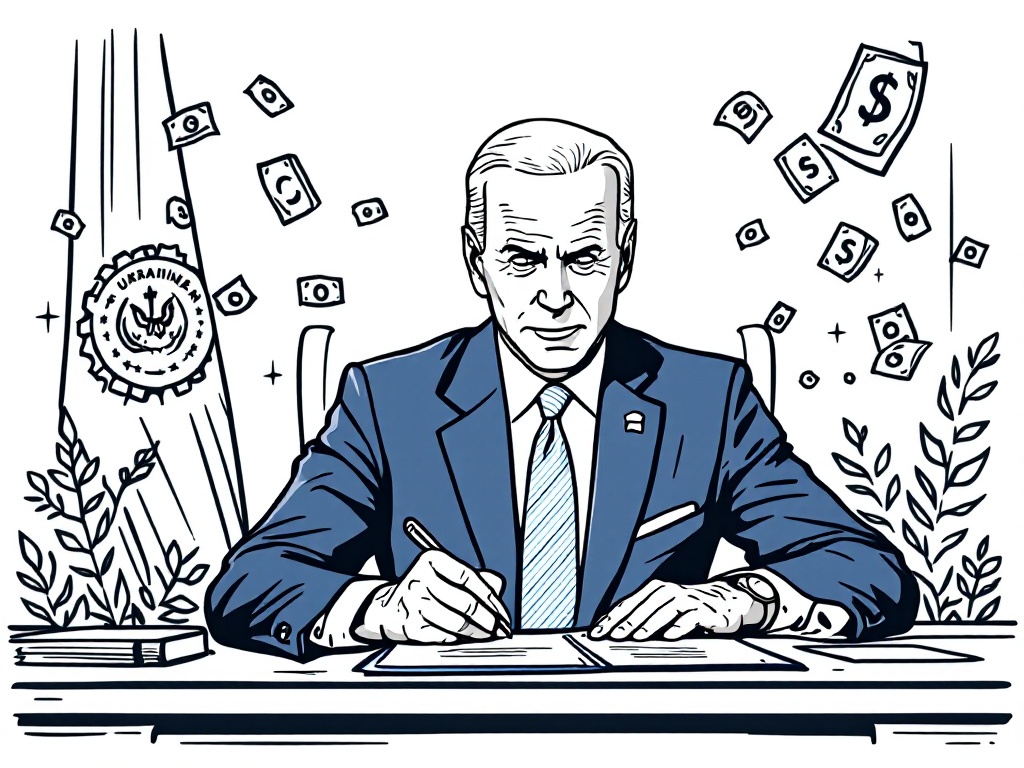Biden's Final Push: $4.6 Billion Ukraine Debt Relief Before Trump Takes Office

Washington, Thursday, 21 November 2024.
In a strategic move ahead of the January 2024 presidential transition, the Biden administration seeks to cancel half of Ukraine’s $9 billion loan. This debt forgiveness, part of a broader $61 billion aid package, faces potential congressional scrutiny but enjoys bipartisan support. The timing is crucial as the administration races to secure Ukraine’s position before Trump’s inauguration.
Bipartisan Support Amidst Political Transition
The Biden administration’s proposal to cancel $4.6 billion of Ukraine’s debt is a calculated maneuver to solidify support for Ukraine amidst geopolitical tensions. The move comes as part of a $61 billion aid package authorized by Congress in April 2024. This initiative reflects a bipartisan consensus, with many lawmakers supporting Ukraine’s fight against Russian aggression. However, the proposal also faces opposition, including from conservative entities like Heritage Action, which argue that such financial commitments prioritize foreign interests over domestic needs[1][2].
Legislative Journey and Challenges
The debt cancellation plan, outlined in a letter to Congress, grants President Biden the authority to forgive up to 50% of the $9 billion loan extended to Ukraine. This legislative provision was included under conditions that allow the administration to adjust support based on Ukraine’s needs. Despite the generally favorable view in Congress, Republican Senator Rand Paul has introduced a resolution to block the debt cancellation, citing concerns over U.S. fiscal responsibility and transparency in foreign aid allocations[3][4].
Strategic Timing Before Presidential Transition
With President-elect Donald Trump set to assume office in January 2024, the timing of this proposal is critical. The Biden administration aims to ensure that Ukraine receives the necessary support to withstand ongoing conflicts and to preempt potential policy reversals under the incoming administration. This urgency underscores Washington’s commitment to countering Russian advances and stabilizing Ukraine’s economy amidst political transitions in the U.S.[5][6].
Final Steps and Future Implications
As the proposal heads to Congress, its acceptance or rejection will signal the future trajectory of U.S.-Ukraine relations. While the administration anticipates approval, given the previous bipartisan backing, the political dynamics in Congress could influence the decision. The outcome will not only impact Ukraine’s economic stability but also shape U.S. foreign policy priorities in the region[7][8].
Sources
- www.bloomberg.com
- kyivindependent.com
- heritageaction.com
- www.usnews.com
- www.reddit.com
- www.yahoo.com